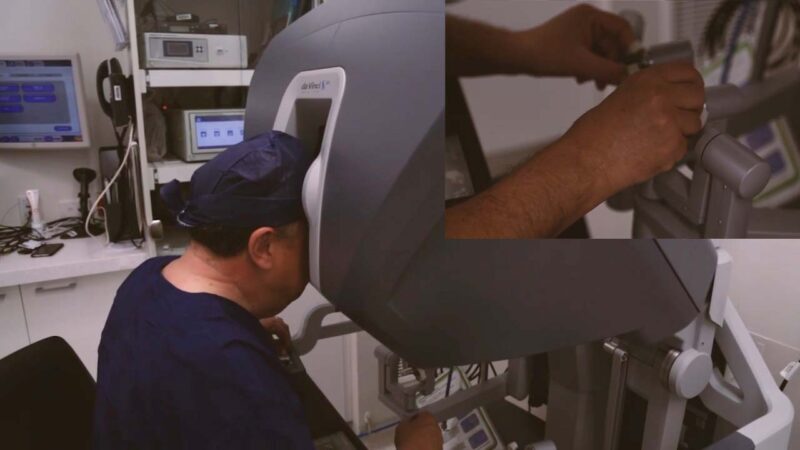PEAK BODY IN CHILD AND FAMILY SERVICES URGES PRIORITISING HEALTHCARE FOR KIDS IN CARE Centre for Excellence in Child and Family Welfare calls on Government and Industry to improve health access
With
Deb Tsorbaris, CEO
Centre for Excellence in Child and Family Welfare &
Chair, Families Australia
Australian Health Journal segment
Filmed in Melbourne | April 2025
The Centre for Excellence in Child and Family Welfare (the Centre) is calling on the Australian Government to prioritise healthcare access for children in out-of-home care.
“We have many amazing young people in care with huge potential, but they’re not set up for success,” said Deb Tsorbaris, CEO “Young people and workers tell us that access to health and education assessments is a huge disadvantage.”
“Children and young people in out-of-home care face significantly higher physical, mental, and developmental health challenges than their peers, yet, many struggle to access the healthcare they require, leading to long-term chronic conditions, particularly in rural and regional areas where primary healthcare services are limited.”
The Centre has joined Families Australia and the National Foster Care Sustainability Group in calling for a prioritising medical, therapeutic, and developmental support for children and young people until the age of 21.
A 2022 study of over 6,000 children in foster or kinship care found that only 41 children had attended all their recommended health check-ups (https://ccch.org.au/resource-hub/reports/the-impact-of-the-covid-19-pandemic-on-children-in-australian-early-childhood-education-and-care/). The Victorian Government has invested $37.8 million in targeted health programs for children in care, but more needs to be done nationally.
“Programs like Victoria’s Pathway to Good Health and Tasmania’s Kids Care Clinics have made significant strides, but children in care deserve a consistent, nationwide approach,” said Tsorbaris.
Between one-third and one-half of children in care have a disability, yet many enter the system undiagnosed. Foster carers struggle to access financial, emotional, and practical support for children with additional needs. Meanwhile, public system waitlists for paediatric, dental, and specialist services leave many children without critical care.
“Children in care are more likely to experience undiagnosed disabilities and mental health challenges,” said Tsorbaris. “Without early diagnosis and intervention, they face compounding barriers to health, education, and independence.
Children with complex medical and developmental needs, require increased investment in trauma-informed paediatric healthcare to support them in their care experience, and better record-keeping and health navigation services to ensure continuity of care, even when they move placements.
“We know the gaps between children in care and their peers in education and health are well-documented,” said Tsorbaris. “It’s time for federal and state governments to step up with a national approach that guarantees children in care the health support they need to thrive.”
For more information visit https://www.cfecfw.org.au
Source: Adapted from media release
You Might also like
-
Australia’s Nursing Crisis Snapshot
“Nursing, already under pressure, is reaching breaking point due to the pressures of COVID-19 and a disjointed healthcare system, including the acute, primary and aged care sectors”, says Kylie Ward, Australian College of Nursing CEO adding, “We must act now to protect our nurses and healthcare; the time has come for a national reckoning on nursing in Australia.”
Australian nurses cannot continue to work under the extreme pressure they are currently operating under – the impacts are mounting.
The almost 400,000 Australian nurses are a constant presence in every one of our major life milestones, national emergencies and global crises. The nurse of today holds a science degree, possesses highly technical training, valuable medical opinions, front-row expertise, is an effective trainer, and is skilled in population and systemic thinking. But the pandemic is inflicting a major emotional and physical toll on nurses.
In this “Perspectives” special, Australian Health Journal spoke with 4 nurses on the challenges they or nurses in their circle have experienced, the key issues as well some of the opportunities. These nurses come from national leadership & policy, large scale workforce management, a final year student completing over a year on placement across 6 Melbourne Hospitals and a NSW based ICU nurse stranded in Mexico, unable to return to a critical role in nursing to an already strained team due to incoming quotas.
While the issues are challenging, there are strategies that can be put into place to ease the pressure, to support nurses, and nursing care in Australia. These are discussed by the the 4 nurses.
– Adjunct Professor Kylie Ward FACN CEO, Australian College of Nursing
– Adjunct Professor Alanna Geary FACN ACN Chair of Workforce Sustainability Policy Chapter & Chief Nursing & Midwifery Officer, Metro North Health
– Natalie Reyes, NSW based ICU Nurse Currently stranded in Mexico
– Hayley Pollock, Final Year Bachelor of Nursing Student & ACN Emerging Nurse Leader
Post Views:
2,895 -
Raising awareness, engagement and inclusion of Allied Health
Anita Hobson-Powell holds the position of Chief Allied Health Officer for the Australian Government within the Department of Health and Aged Care. With a background as an exercise physiologist and extensive experience leading allied health professional associations*, she has been entrusted with three main priorities. First, she aims to raise awareness about the significance of allied health professionals and their role in the healthcare system. This involves ensuring that decision makers and individuals engaging with health services understand the contributions of allied health professionals.
-
Australian Healthcare and Hospitals Association Hospitals and Clinics Innovation New Content Robotics Technology
Future of minimally invasive surgery
Macquarie University Hospital is the first hospital in Australia to have three robotic surgical systems. It remains the busiest centre for robotic urology in New South Wales and has rapidly growing programs in other areas. What is behind the Hospital’s success?
Conjoint Associate Professor Walter Kmet, CEO of Macquarie University Hospital, says that the story of robotics at the Hospital is driven by its academic health sciences identity.



